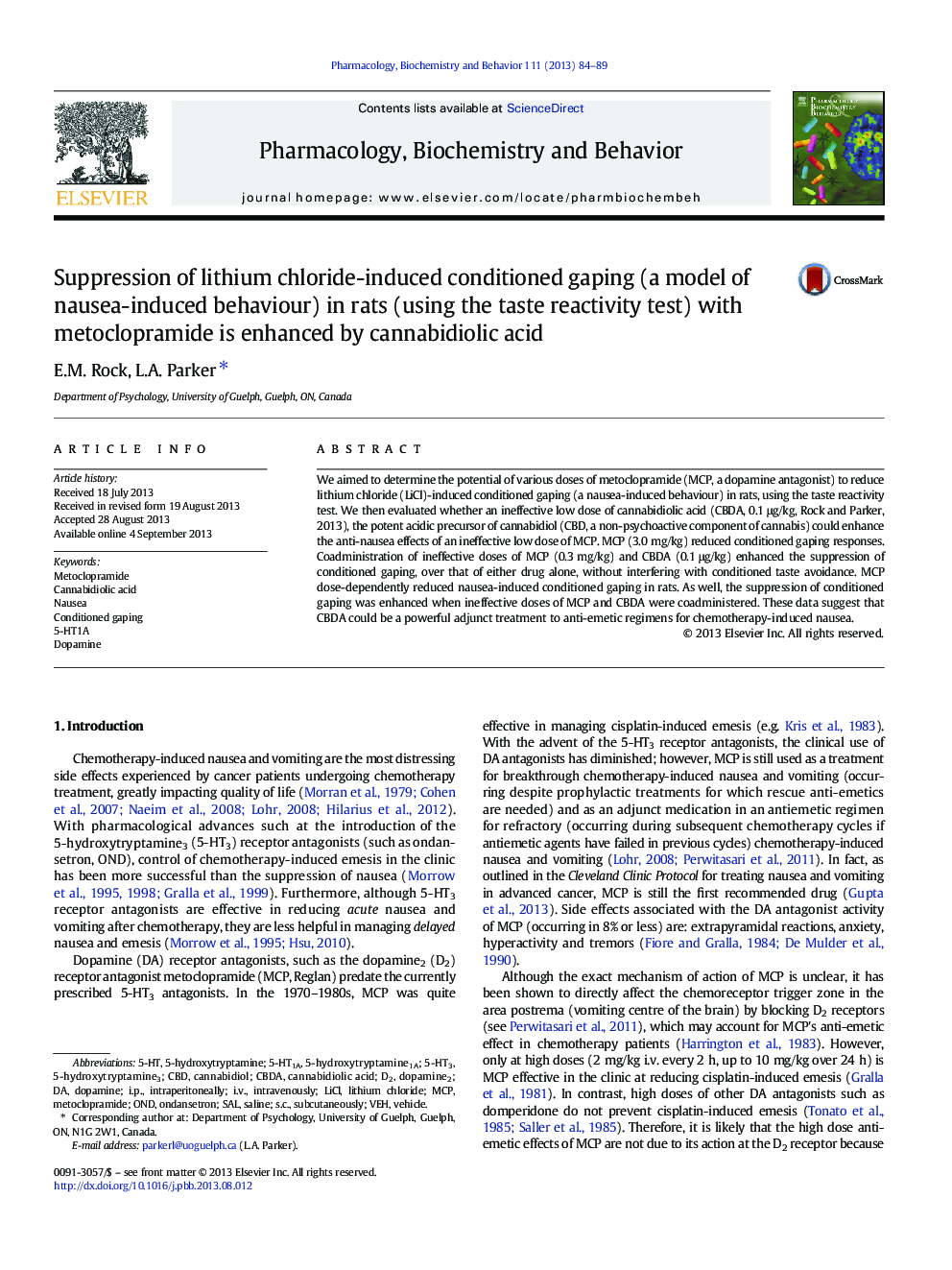| Article ID | Journal | Published Year | Pages | File Type |
|---|---|---|---|---|
| 8351642 | Pharmacology Biochemistry and Behavior | 2013 | 6 Pages |
Abstract
We aimed to determine the potential of various doses of metoclopramide (MCP, a dopamine antagonist) to reduce lithium chloride (LiCl)-induced conditioned gaping (a nausea-induced behaviour) in rats, using the taste reactivity test. We then evaluated whether an ineffective low dose of cannabidiolic acid (CBDA, 0.1 μg/kg, Rock and Parker, 2013), the potent acidic precursor of cannabidiol (CBD, a non-psychoactive component of cannabis) could enhance the anti-nausea effects of an ineffective low dose of MCP. MCP (3.0 mg/kg) reduced conditioned gaping responses. Coadministration of ineffective doses of MCP (0.3 mg/kg) and CBDA (0.1 μg/kg) enhanced the suppression of conditioned gaping, over that of either drug alone, without interfering with conditioned taste avoidance. MCP dose-dependently reduced nausea-induced conditioned gaping in rats. As well, the suppression of conditioned gaping was enhanced when ineffective doses of MCP and CBDA were coadministered. These data suggest that CBDA could be a powerful adjunct treatment to anti-emetic regimens for chemotherapy-induced nausea.
Keywords
Related Topics
Life Sciences
Biochemistry, Genetics and Molecular Biology
Biochemistry
Authors
E.M. Rock, L.A. Parker,
